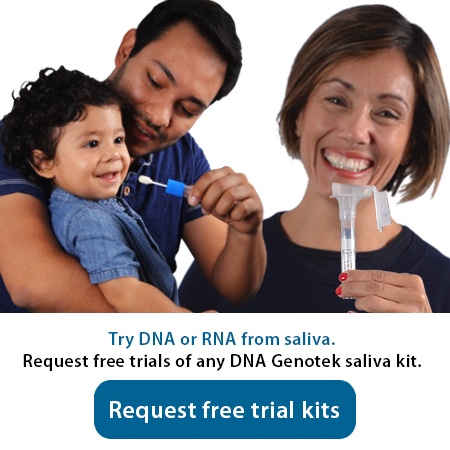2019-09-18
If you are developing a genetic test that provides diagnostic information as part of a laboratory developed test (LDT) for use in the United States and were asked if you had to use a Food and Drug Administration (FDA) cleared DNA collection device, what would you say?
Many genetic test developers have difficulty answering this question -- but don't worry, it's not your fault. It’s not always easy to find a clear answer on whether an FDA cleared device is required or a Research Use Only (RUO) device is sufficient... even on Google. What makes it especially difficult is that this is a complex area and many developers of LDTs are unclear on how to interpret the rules. It all comes down to risk mitigation, understanding what is required for compliance with the FDA, and ensuring your test meets those requirements.
The FDA defines an LDT as a type of in vitro diagnostic test that is designed, manufactured, and used within a single laboratory. Currently, the FDA has stated it is exercising enforcement discretion with respect to LDTs.[1] Per FDA definition, collection devices are not LDTs.
We carefully reviewed FDA statements regarding the use of RUO and IVD labeled collection devices in a clinical setting or for diagnosis or patient management (which includes providing diagnostic results to patients). Below is an excerpt from page 8 of the guidance document, Distribution of In Vitro Diagnostic, Products Labeled for Research Use Only or Investigational Use Only: Guidance for Industry and Food and Drug Administration Staff.
“With respect to IVD products that are appropriately labeled RUO, the RUO labeling is meant to serve as a warning, to prevent such products from being used in clinical diagnosis, patient management, or an investigation that is not exempt from 21 CFR part 812. In general, IVD products that are intended for clinical diagnosis or patient management must be labeled “For In vitro diagnostic use” and be in compliance with all relevant regulations for In vitro diagnostic devices.”
The guidance document further states that:
“An IVD product should not be labeled RUO if it is intended for use in a clinical investigation subject to 21 CFR part 812 or for clinical diagnostic use outside an investigation (for example, in clinical diagnosis for standard medical practice). FDA would consider such an IVD product to be misbranded under section 502(a) of the Act, 21 U.S.C. 352(a), if it were labeled “For Research Use Only” or otherwise labeled”
In addition, we found that in FDA cleared genetic test systems[2], [3], [4], the Agency has required, as a special control,
“the use of a collection device that is FDA cleared/approved or classified as 510(k) exempt, with an indication for use that states for in vitro diagnostic use in DNA testing”[5].
“the use of a FDA-compliant collection device provides assurances regarding safety, effective and quality of that component, which helps assure safety and effectiveness of the test system”.
So if you are developing a genetic test system/laboratory developed test (LDT) for use in the United States for diagnosis or management of patient care, our interpretation of the relevant FDA guidance is that a FDA cleared DNA collection device is required. As you develop your genetic test, think about how the issues above might impact your business, expose you to unnecessary risk, and who you'll need to work with to make it a success. If you already have a clinical diagnostic genetic test on the market that relies on an RUO collection device or a device that is not FDA cleared, we would encourage you consider seeking regulated options for your test(s).
We also advise you to reach out to the FDA directly if you have additional questions on this topic. You can contact the FDA direct via email here: OIRPMGroup@fda.hhs.gov.
Want more information on how to work with FDA cleared DNA saliva collection devices for your LDT? Click here or contact us at info@dnagenotek.com to learn more about DNA Genotek’s FDA 510(k) cleared collection devices or to request samples.
Please note that nothing in this article is intended to constitute legal advice and you should consult with your legal advisor for legal assistance in this matter.
References
[1] https://www.fda.gov/medical-devices/vitro-diagnostics/laboratory-developed-tests
[2] https://www.accessdata.fda.gov/cdrh_docs/reviews/DEN140044.pdf
[3] https://www.accessdata.fda.gov/cdrh_docs/reviews/DEN160026.pdf
[4] https://www.accessdata.fda.gov/cdrh_docs/reviews/DEN170046.pdf
[5] https://www.accessdata.fda.gov/cdrh_docs/reviews/DEN180028.pdf


